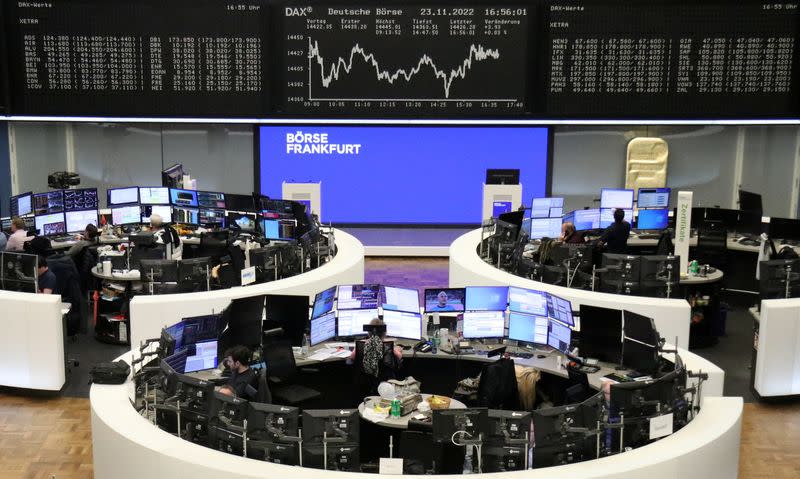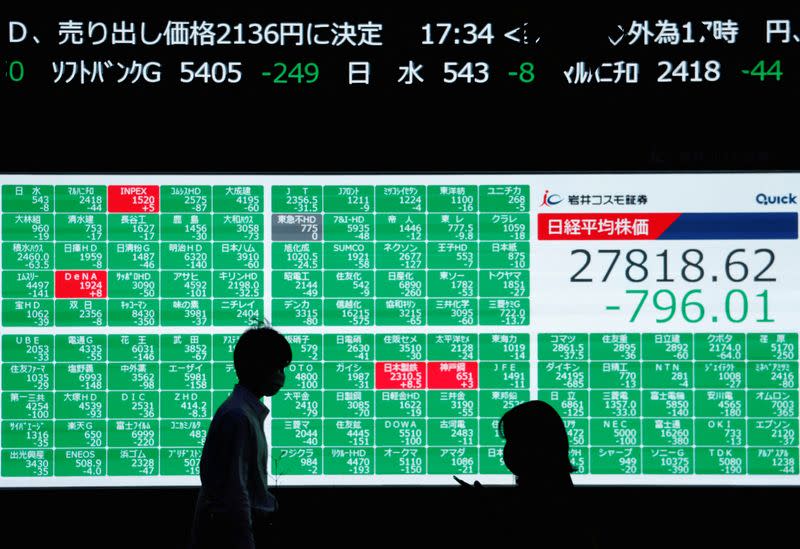In This Article:
By Marc Jones
LONDON (Reuters) - Shares hit a two-month high and the dollar swooped towards a three-month low on Thursday, after Federal Reserve signals of smaller interest rate rises from next month were followed by the message from Frankfurt that the ECB will plough on.
With Wall Street shut for Thanksgiving, it was up to Europe to continue the rebound in market confidence that has been building for more than a month.
It seemed a bit of a struggle early on when London's FTSE refused to budge, but there were just enough gains in the rest of Europe [.EU] and in Asia [.SS][.T] overnight to ensure things kept shuffling forward.
By lunch MSCI's 47-country index of world stocks was at its highest since mid-September, while German and British government bond yields, which drive Europe's borrowing costs, had fallen to their lowest levels since October and September respectively. [.EU]
"The Federal Reserve minutes signalled that some sensible voices are trying to drown out Fed Chair Powell’s relentless 'hike, hike, hike' chant," said UBS Chief Economist Paul Donovan.
A "substantial majority" of Fed policymakers had agreed it would "likely soon be appropriate" to slow the pace of interest rate rises, the minutes released on Wednesday showed, although Donovan pointed out that there was no signal of an actual halt yet and various Fed members thought rates might need to go "somewhat higher" than expected.
Futures markets show investors now see U.S. rates peaking just above 5% by May and are pricing in a roughly 75% chance that the Fed now switches to 50 basis point rises rather than the 75 bps it has been using recently.
The ECB's equivalent minutes out on Thursday showed its rate setters fear that inflation may now be getting entrenched in the euro zone.
"Incoming data so far suggest that the room for slowing down the pace of interest rate adjustments remains limited, even as we are approaching estimates of the 'neutral' rate," one of its most influential Executive Board members Isabel Schnabel said separately.
For the currency markets, it meant the 7-week sell-off in the dollar continued. [/FRX]
The euro rose as high as $1.0447, edging it closer to its recent four-month top of $1.0481, while the dollar weakened 0.6% against the Japanese yen to 138.70 yen and past $1.20 against sterling.
"The dollar could stay pressured for a bit longer, but it's probably embedding a good deal of Fed-related negatives now," analysts at ING wrote.
TURKEY ON THANKSGIVING


